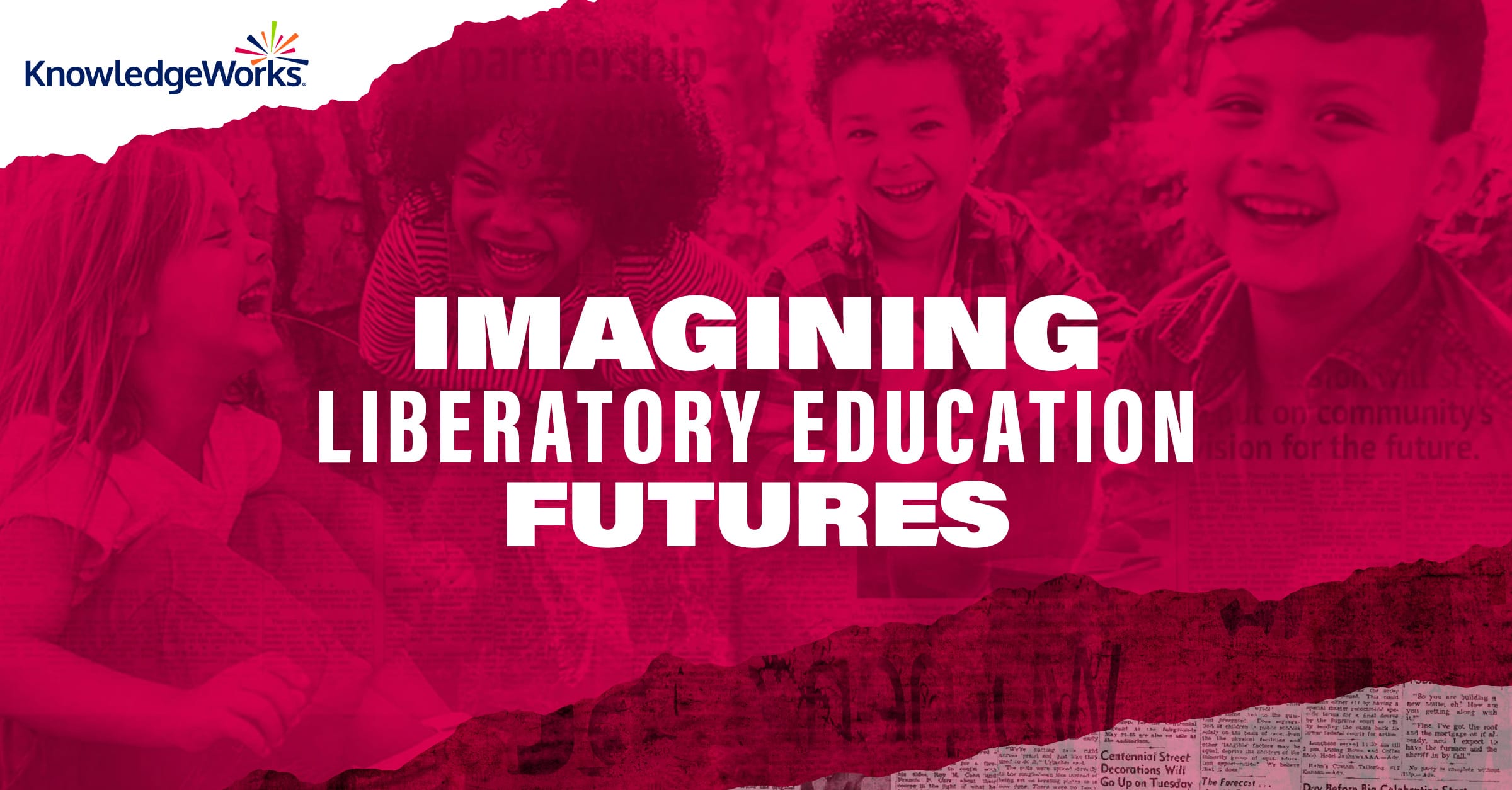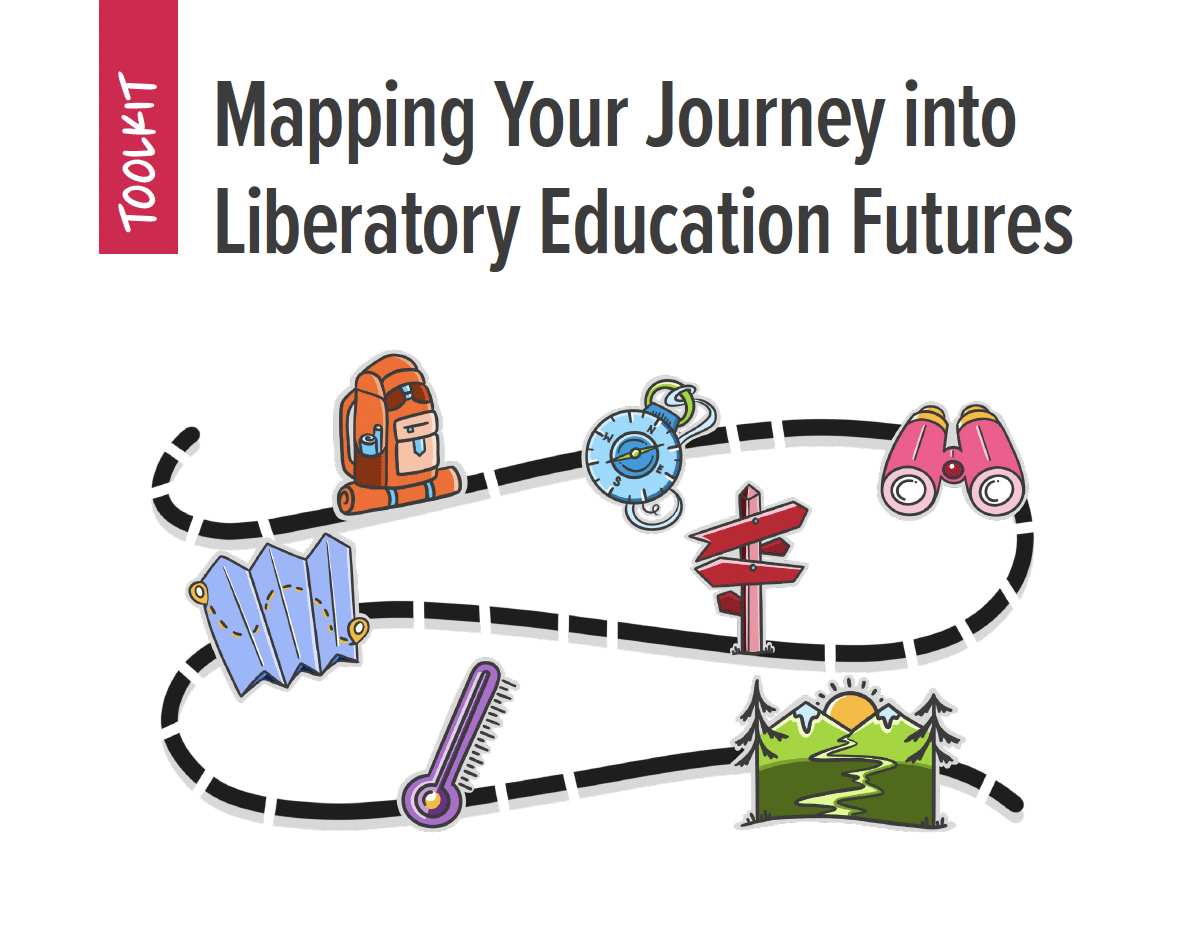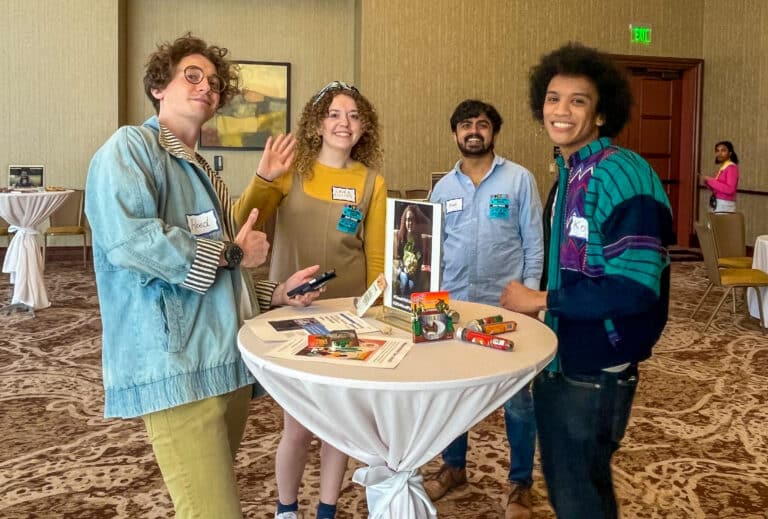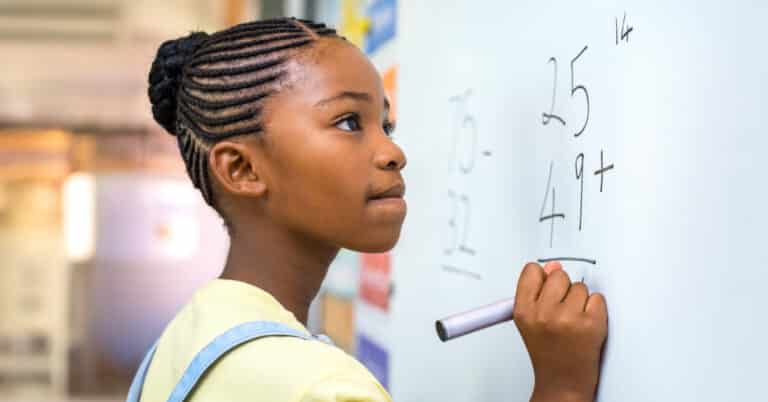As we look to the future of learning, one possibility is that we could reorient teaching and learning systems, expectations and experiences to put a holistic view of human development at the center. Such a shift – which KnowledgeWorks dubbed “human-centered learning” in our fifth anchor forecast – could be the next horizon of personalized learning. It could reflect a central focus on equity along with greater emphasis on social-emotional skill development, sensitivity to trauma and culturally situated learning.
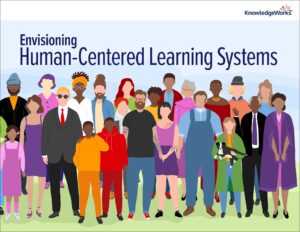
Education’s role in supporting the healthy development of young people, effective lifelong learning and community vitality is increasingly crucial. How can we help create human-centered learning systems?
Learn more >
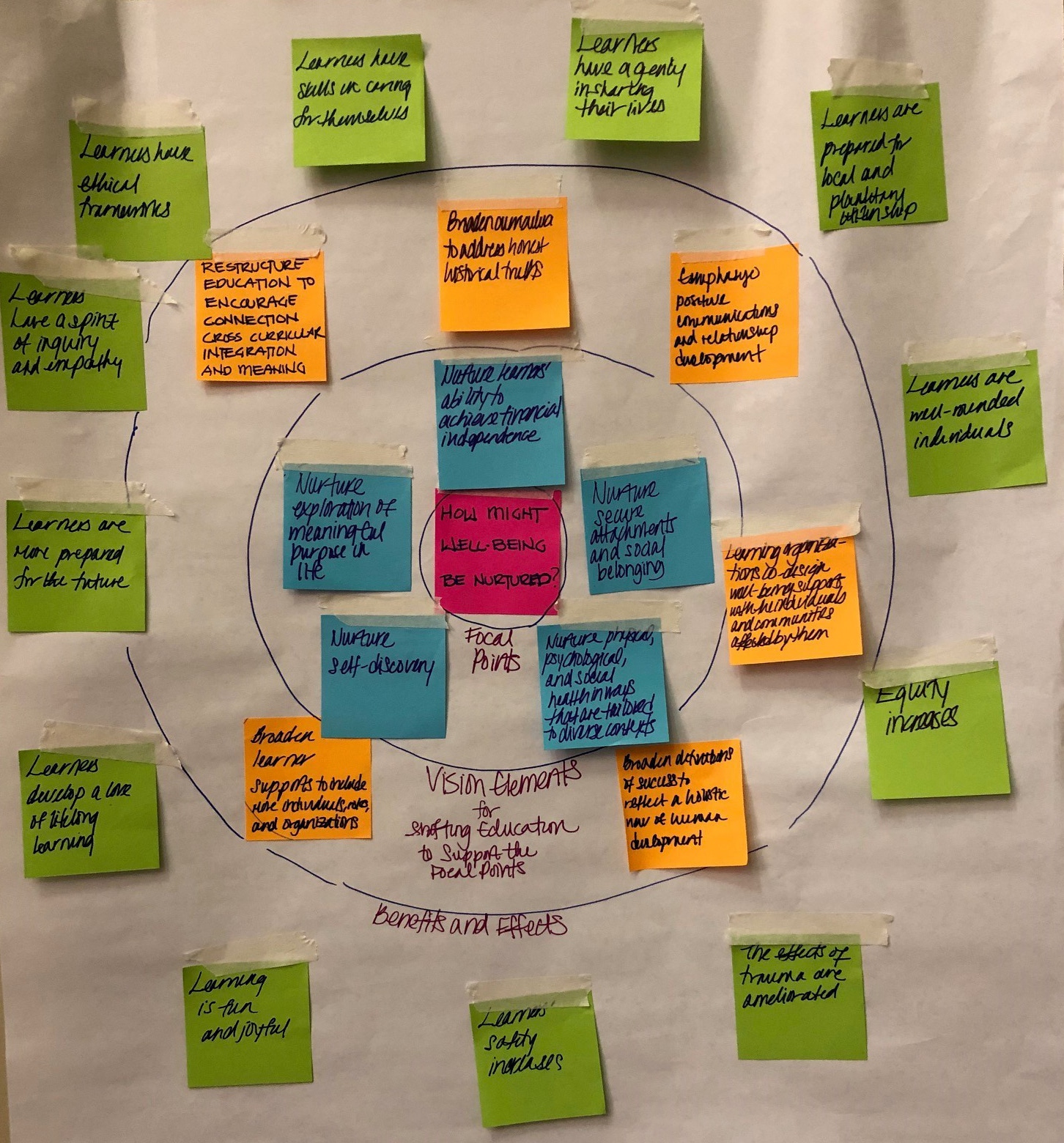 At a recent symposium, “Re-designing Education to Shape a Better World,” I was fortunate to be invited to participate in a grand design challenge to imagine and prototype “concepts for future education systems to empower students and teachers to develop a positive new world vision.” Inspired by the prospect of human-centered learning, my design team asked, “How might well-being be nurtured in education systems?”
At a recent symposium, “Re-designing Education to Shape a Better World,” I was fortunate to be invited to participate in a grand design challenge to imagine and prototype “concepts for future education systems to empower students and teachers to develop a positive new world vision.” Inspired by the prospect of human-centered learning, my design team asked, “How might well-being be nurtured in education systems?”
In developing this concept, we identified five focal points related to well-being:
- Nurture secure attachment and social belonging
- Nurture physical, psychological and social health in ways that are tailored to diverse contexts
- Nurture self-discovery
- Nurture exploration of meaningful purpose in life
- Nurture learners’ ability to achieve financial independence.
We also generated six vision elements for shifting education to support those focal points:
- Emphasize positive communications and relationship development
- Co-design well-being supports with the individuals and communities affected by them
- Broaden definitions of success to reflect a holistic view of human development
- Broaden learner supports to include more individuals, roles and organizations
- Restructure education to encourage connection, cross-curricular integration and meaning
- Broaden curricula to address honest historical truths.
If education shifted in these ways, we thought, learners would be well-rounded individuals. They would have skills in caring for themselves. They would have agency in steering their lives. They would also have ethical frameworks. They would have a spirit of inquiry and empathy and would develop a love of lifelong learning. They would be prepared for both local and planetary citizenship.
Simply put, learners would be more prepared for the future.
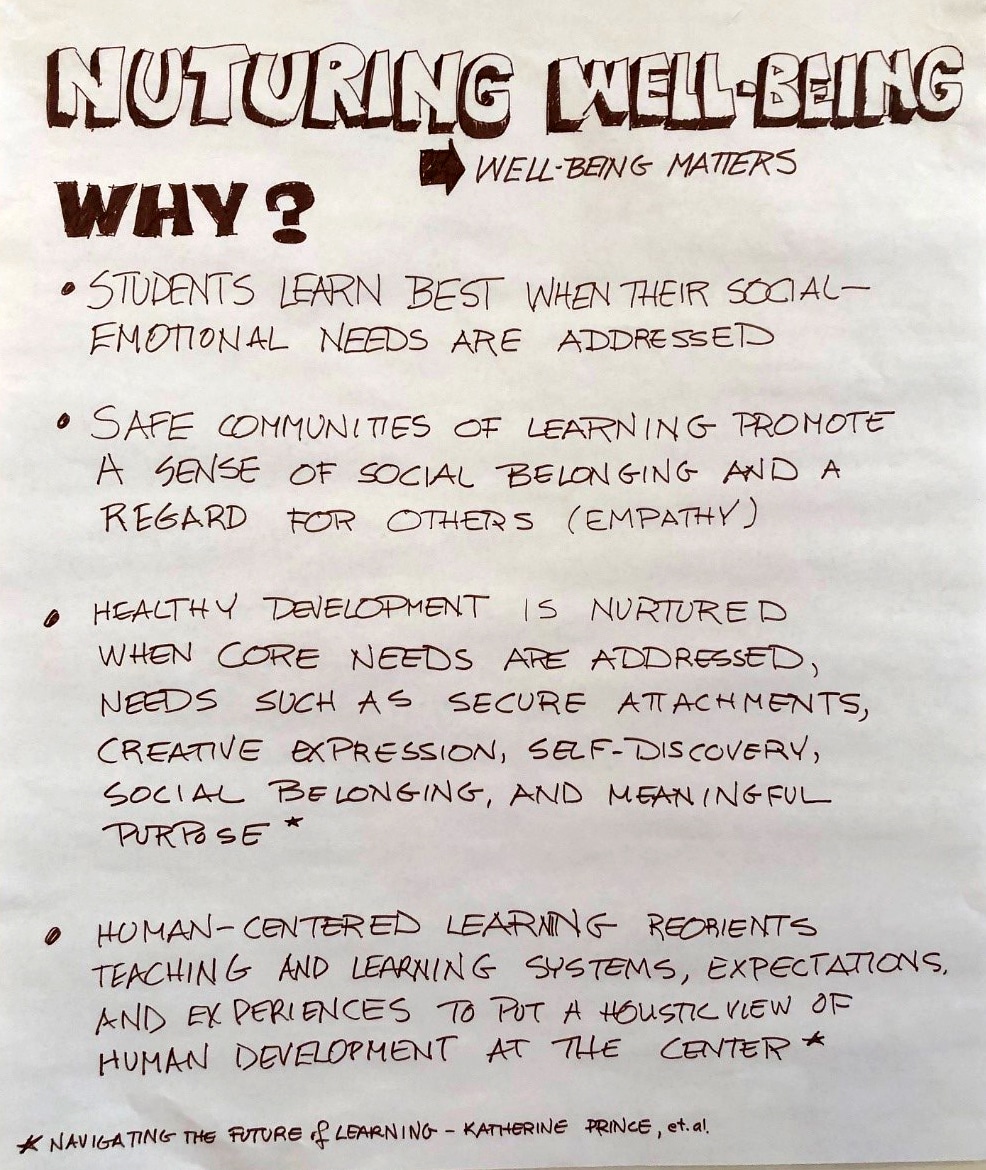 These ideas probably sound lofty; the shift, a big leap for education systems to make. But well-being matters. Students learn best when their social-emotional needs are addressed. In addition, safe communities of learning promote a sense of belonging and empathy for others, positioning learners to contribute effectively to many communities during and after their educations.
These ideas probably sound lofty; the shift, a big leap for education systems to make. But well-being matters. Students learn best when their social-emotional needs are addressed. In addition, safe communities of learning promote a sense of belonging and empathy for others, positioning learners to contribute effectively to many communities during and after their educations.
While most learning communities can probably take small or mid-size steps toward nurturing well-being, attending to it thoroughly will entail making significant structural, cultural and operational changes. It will require a whole network of organizations and individuals within and beyond traditional schools, colleges and universities. But what’s more important than the people who are at the heart of education?
If we broaden our understanding of education’s focus to include well-being, we have a chance of doing better by each learner, each community and society as a whole. We’re going to need each learner to meet the challenges and complexities of the future. I think we’re going to need to make learning human-centered.
Human-centered learning is a pillar of our sixth anchor forecast Imagining Liberatory Education Futures. Explore four stories from possible futures where liberatory education takes shape in different contexts.

